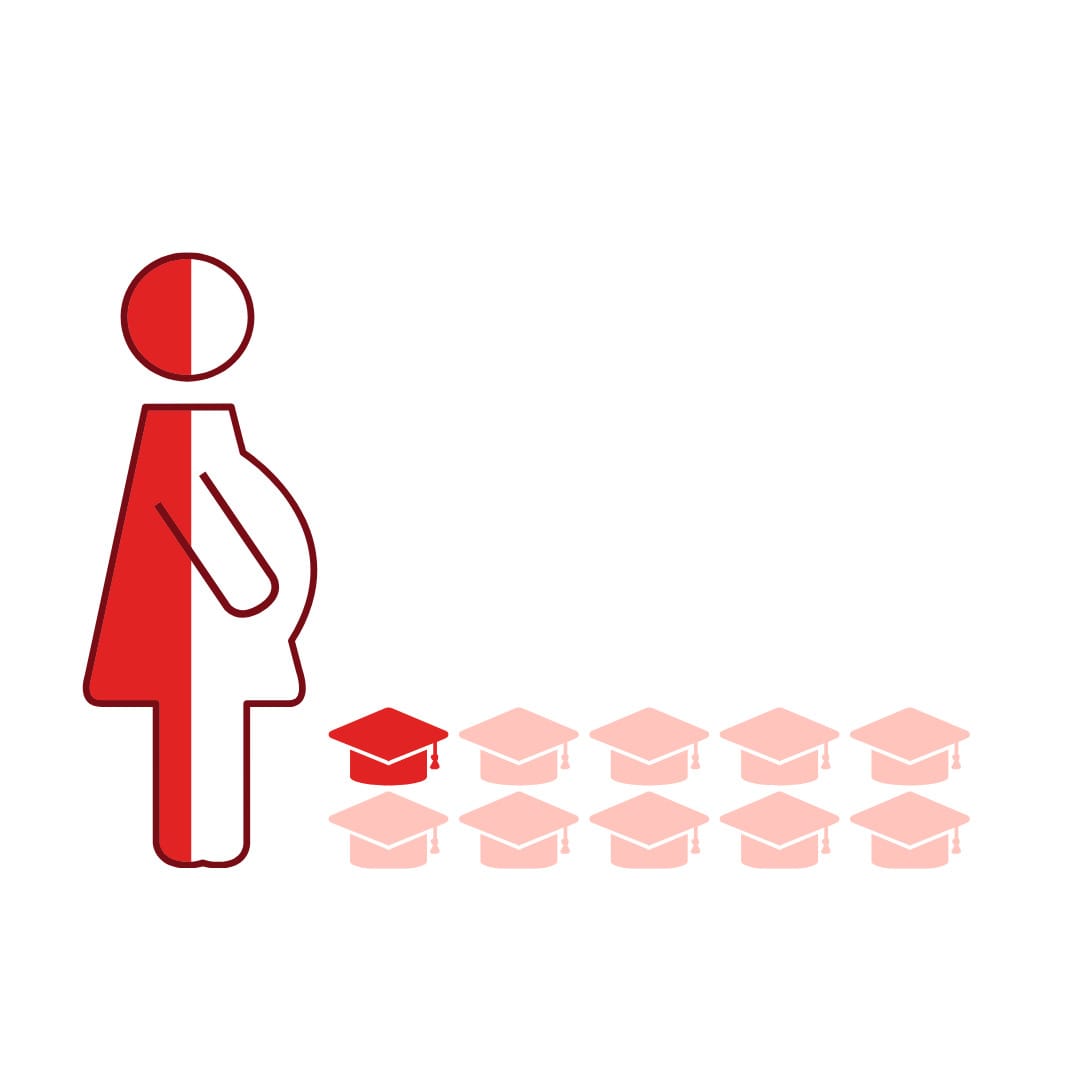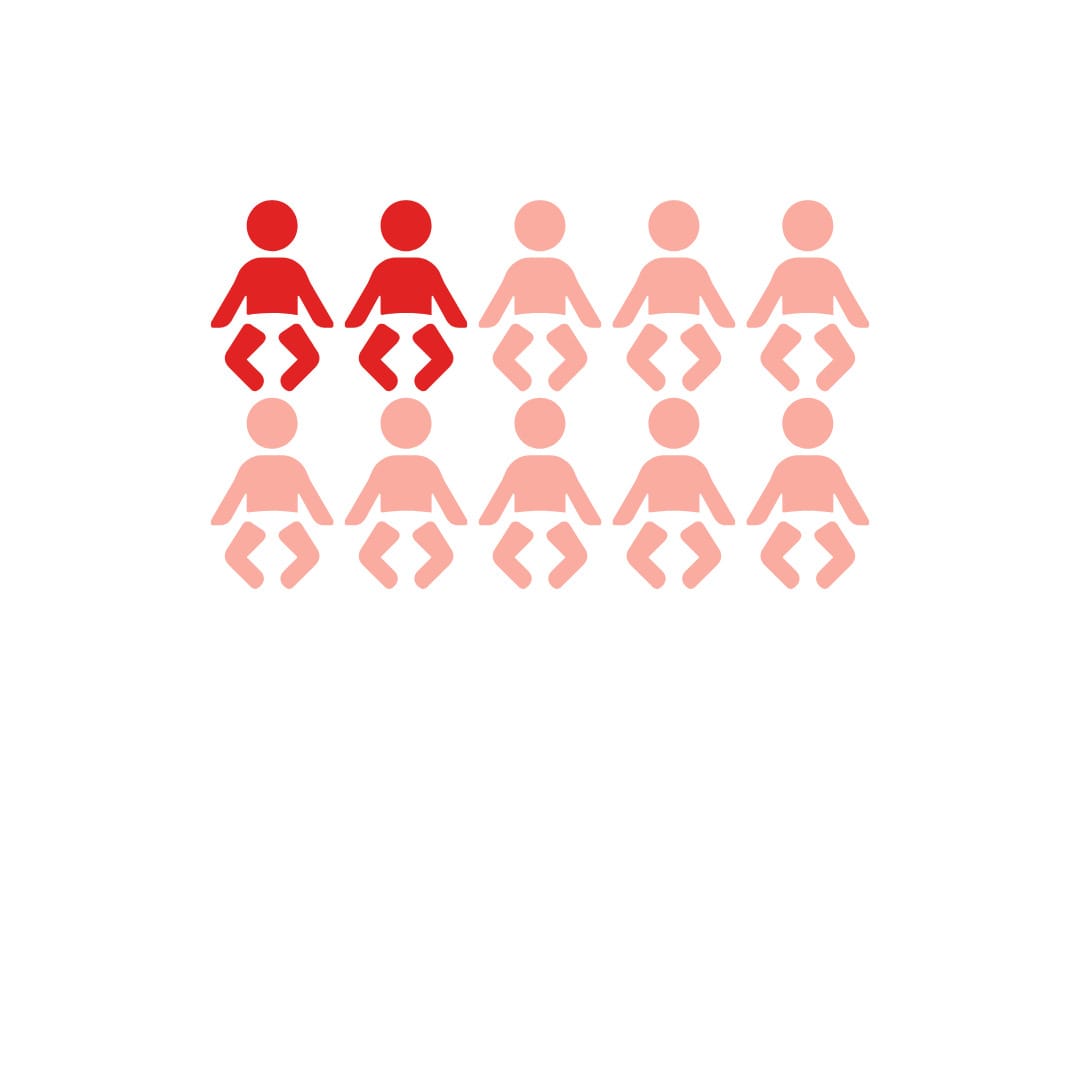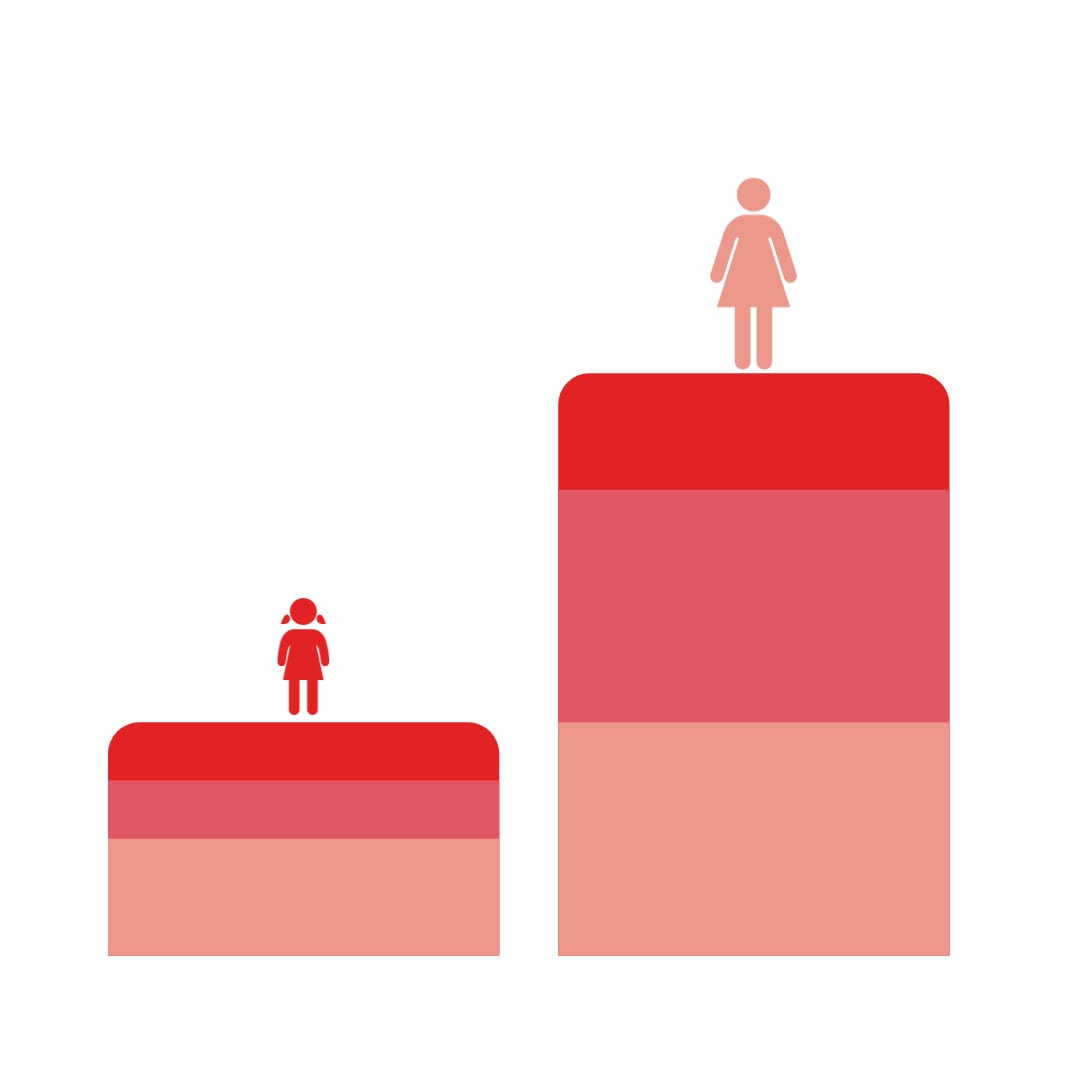Since 2011, the International Day of the Girl Child has been celebrated every October 11. This date was created to evidence the particular challenges girls face all around the world. From lack of access to education, discrimination, malnutrition and sexual violence, girls face a myriad of obstacles to enjoy a plenty life. This blog delves into the struggle for Guatemalan girls’ sexual and reproductive rights.
Girls Bearing Children
In Guatemala, according to Observatorio de Salud Sexual (Sexual Health Observatory), so far in 2023 there have been 43,331 pregnancies among girls between 10 and 19 years old. Early pregnancies not only endanger the girl’s health but also traps them in a cycle of poverty, limiting their opportunities for education and personal growth. According to UNFPA, these are some of the challenges girls face in Guatemala:

Only 2% of women who became mothers during adolescence go on to obtain a university degree.

In 2022, 18% of all births were from girls aged 10 to 19.

Adolescent mothers face a 30% wage gap compared to women who became mothers as adults.
Empowering girls Through CSE
While those statistics can be disheartening, there are still numerous ways we can improve the lives of girls. For example, providing access to comprehensive sexual health education can yield several benefits:
- CSE brings positive outcomes by enhancing young individuals’ understanding and fostering favorable attitudes toward sexual and reproductive health, as well as positively impacting their behaviors.
- CSE helps students wait longer before they start having sex, encourages the use of condoms and other contraceptives when they do, boosts their understanding of their bodies and relationships, reduces risky behaviors, and lowers the instances of unprotected sex.
- The chances of achieving success in preventing unintended pregnancies and sexually transmitted infections through CSE are substantially higher when it places specific emphasis on addressing issues related to gender and power, with a fivefold increase in effectiveness.
Laura was just fourteen when she first joined our Youth Leaders Program. She was a quiet and reserved girl who often preferred to sit at the back of the classroom. Her home life was far from easy; she lived with her two younger brothers after her mother had abandoned them. Laura had met someone, a partner, who initially seemed caring and supportive but eventually became emotionally abusive.
However, through her participation in the Youth Leaders Program, a significant transformation began to take place in Laura’s life. The program not only provided her with valuable life skills but also gave her a support system that she had never experienced before. Laura began to understand the signs of abuse and realized that her relationship was far from healthy.
Determined to make a change, she took the courageous step of seeking help. The program’s mentors and counselors provided her with the guidance and support she needed. They helped her connect with resources that could assist her in addressing the abusive relationship, offering counseling and a safe space to share her experiences.
With the support of the program, Laura worked on regaining her self-esteem and independence. She found the strength to leave the abusive relationship and rebuild her life. Over time, Laura’s confidence grew, and she started to take on leadership roles within the program. She became a source of inspiration for other young participants who were going through their own challenges, demonstrating that with the right support, individuals can break free from abusive relationships and thrive.
Laura’s story serves as a powerful example of resilience and the transformative power of support systems. It underscores the importance of empowering individuals to recognize and address abusive relationships, promoting their physical and emotional well-being.
